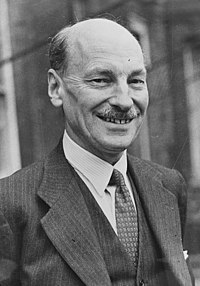Dunkirk and the British war cabinet

In late May 1940, as the Wehrmacht reached the English Channel and the British Expeditionary Force (BEF) retreated to the port of Dunkirk, tensions within the British war cabinet led to its members dividing over the question of whether to make terms with Nazi Germany or to continue hostilities. The main protagonists were the Prime Minister, Winston Churchill, and the Foreign Secretary, Lord Halifax. The dispute escalated to crisis point and threatened the continuity of the Churchill government. The retreat to Dunkirk signalled the imminent fall of France and Halifax believed the government should explore the possibility of a negotiated peace settlement. His hope was that Hitler's ally, the still-neutral Italian dictator Mussolini, would broker an agreement. Churchill opposed negotiation and urged his colleagues to fight on. He was supported in the war cabinet by its two Labour members, Clement Attlee and Arthur Greenwood, and also by Sir Archibald Sinclair, who as leader of the Liberal Party was co-opted to the war cabinet for its meetings about proposed negotiations. Churchill's biggest problem was that he was not the leader of the Conservative Party and he needed to win the support of ex-Prime Minister Neville Chamberlain, without which he could have been forced to resign by the large Conservative majority in the House of Commons.
References
Provenance
- Some content on this page may previously have appeared on Wikipedia.
This work was originally written by me using pseudonyms and was published online 15 December 2019.
Some minor additions and amendments were made between 13 September 2020 and 18 January 2021. I think it should retain the attribution notice for the present and be classified as developing. Thanks. John (talk) 10:34, 31 May 2023 (CDT)



